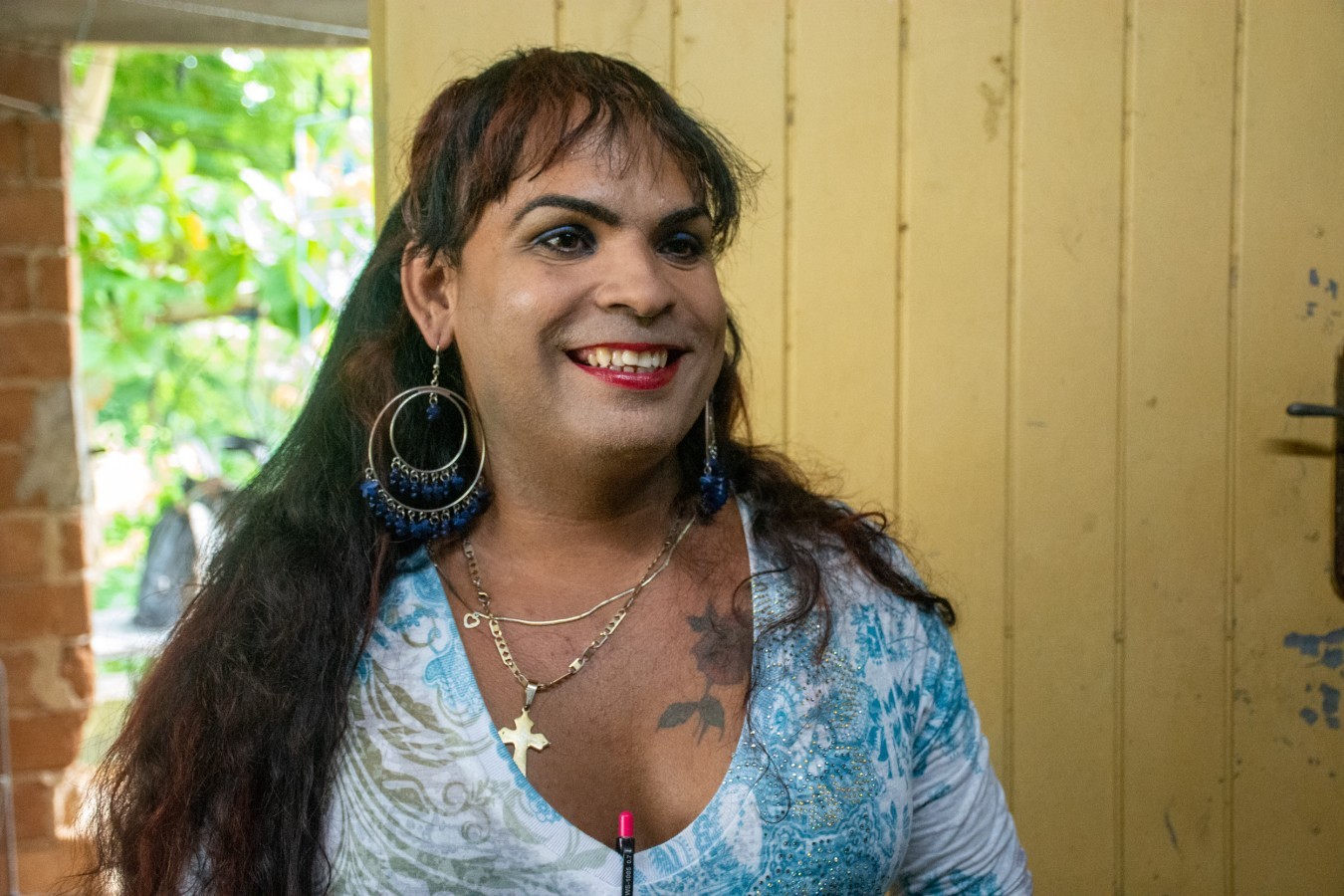CAMAGÜEY.-If Alejandra weren’t born in La Belén neighborhood, then someone would have to make her up, bring her from another planet, or at least, paint her with genuine lines, because people that make others dream are vital. She lives where many have tried to raise their voices, and yet, no one has heard them; nevertheless, she has made herself heard.
Colors and joy inhabit her body and home, where goals are bigger than fears.
“The name my parents chose for me was Diego Braulio, but it was far from my true self or my personality. That is why I chose to name myself Alejandra, a simple name that I love. Since little, I loved to do things that were not acceptable for a boy: playing with dolls, having the role of a mom when playing house…, and I think that, somehow, my parents always knew I did not match with Diego Braulio”.
School was a hard period for her: she had to pretend or make up girlfriends as to “cover-up” something she was refusing to accept. After graduating high school Alejandra spoke to her dad, who slowly came to terms with his son being homosexual, but didn’t approve that she dressed as a woman.
“It was a different time: transgender people were associate with nightlife, illicit activities, they hid themselves in order to have relationships and everything else. My parents were very afraid that I would get rejected or discriminated; and I was afraid too, but I had to be me, I couldn´t pretend anymore”.
Yoruba legends say that Shango behave as a man for six months, and as a women for the other six months. That’s how Alejandra felt for a long time when she quit working because she was not allowed to dress herself the way she wanted. She faced misunderstandings and obstacles, because transphobia is often so harsh that it needs labels to lock all the diversity of the world into an M or an F on the ID card.
“After a long time of hormonal treatments, of actual legal struggles, and with the support of the Cuban Women Federation and the Transgender People Network in Camagüey, I began to work again, without stopping to be me. At some point, I thought about having a sex reassignment surgery, but I changed my mind because I feel my true self this way, and I’m not willing to risk myself for something I don´t need, just to follow social norms”.

Alejandra's face lights up when she talks about her job as a social worker in the community of La Esperanza, the families she assists, her university career, her mission as a health promoter in the Transgender People Network, her husband, and her family. But things get uncomfortable when talking about fears and hatred: “sometimes people yell offensive words at me in the street, and they look at me like I’m a freak, but I’ve learned to ignore them, to laugh even, and to go on my way feeling proud of who I am. My parents taught me very positive values, which have influenced my education as a citizen, and that prevents me from being disrespectful to anyone, even to those who are disrespectful”.
Something as small as the ID card (which we sometimes forget at home or gets lost in our wallets) is a trophy to Alejandra, and she shows it proudly: “This is my latest achievement: being of the first ones in the Trans Network to change my name on the ID card. I stopped being Diego Braulio a long time ago, but on May 17th, 2022, I officially started calling myself Alejandra Massaguer Rodríguez”.
At the beginning of the interview, Alejandra had to lock in the room what she calls her children, a couple of furniture-smashing Doberman dogs. Becoming a mother is not in her immediate plans, but she does plan to marry Reinier, the boy with whom she has been happy for nine years.
“We met when I was still Diego, and then just by chance, we met again while he was driving his pedicab. He is a very nice person, and we love each other very much. We have struggle together in order to succeed. We built this humble house, and here we live poor but proud and happy. If the Family Code is approved, we would like to get married; we don’t need it because love doesn’t require paper and signatures, but it’s a matter of recognition. Besides, if one day we were to divorce, what legal protection would I have?”
Alejandra dreams and makes others dream of a more educated, inclusive and united Cuba, of the approval of the Family Code and a Gender Identity Law, of everyone calling her by her chosen name and treating her with respect. She wants to see another letter instead of an M in her ID card; to eliminate taboos, to protect love, and to continue helping and learning.
After saying goodbye to the interviewers, Alejandra would almost immediately leave on her bicycle to work again non-stop, perhaps to visit a disabled person, or to help an old lady, or to overflow her sensitivity in others, which is the best way to be indispensable. Perhaps for that reason, her voice is heard so loudly, in a place where almost nothing can be heard, that not even the mud on the road to her little house can hide her hopes.
Translated by Claudia Quesada 3rd year English Language student
Reviewed by Linet Acuña Quilez

